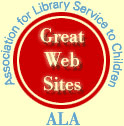
CRLS Research Guide
|
|
|
|
Brainstorming Research Questions
Tip Sheet 10Ask these questions:
What is it?
Why should I do it?
When do I do it?
How do I do it?
Asking factual questions:
Assume your reader knows nothing about your subject. Make an effort to tell them everything they need to know to understand what you will say in your project.Make a list of specific questions that ask : Who? What? When? Where?
Example: For a report about President Abraham Lincoln's attitude and policies towards slavery, people will have to know; Who was Abraham Lincoln? Where and when was he born? What political party did he belong to? When was he elected president? What were the attitudes and laws about slavery during his lifetime? How did his actions affect slavery?
Asking Interpretive Questions:
These kinds of questions are the result of your own original thinking. They can be based on the preliminary research you have done on your chosen topic. Select one or two to answer in your presentation. They can be the basis of forming a thesis statement.
A. Hypothetical: How would things be different today if something in the past had been different?
Example: How would our lives be different today if the Confederate (southern) states had won the United States Civil War? What would have happened to the course of World War Two if the Atomic Bomb hadn't been dropped on Hiroshima and Nagasaki?
B. Prediction: How will something look or be in the future, based on the way it is now?
Example: What will happen to sea levels if global warming due to ozone layer depletion continues and the polar caps melt significantly? If the population of China continues to grow at the current rate for the next fifty years, how will that impact its role in world politics?
C. Solution: What solutions can be offered to a problem that exists today?
Example: How could global warming be stopped? What can be done to stop the spread of sexually transmitted diseases among teenagers?
D. Comparison or Analogy: Find the similarities and differences between your main subject and a similar subject, or with another subject in the same time period or place.
Example: In what ways is the Civil War in the former Yugoslavia similar to (or different from) the United States Civil War?
What is the difference in performance between a Porsche and a Lamborghini?
E. Judgment: Based on the information you find, what can you say as your informed opinion about the subject?
Example: How does tobacco advertising affect teen cigarette smoking? What are the major causes of eating disorders among young women? How does teen parenthood affect the future lives of young women and men?



